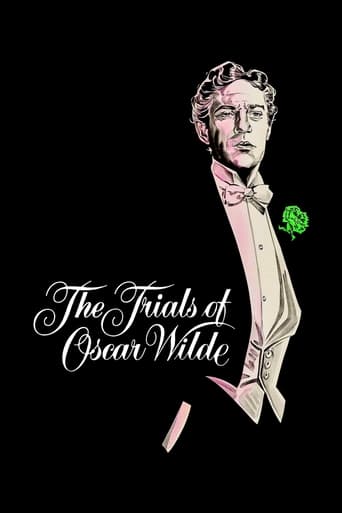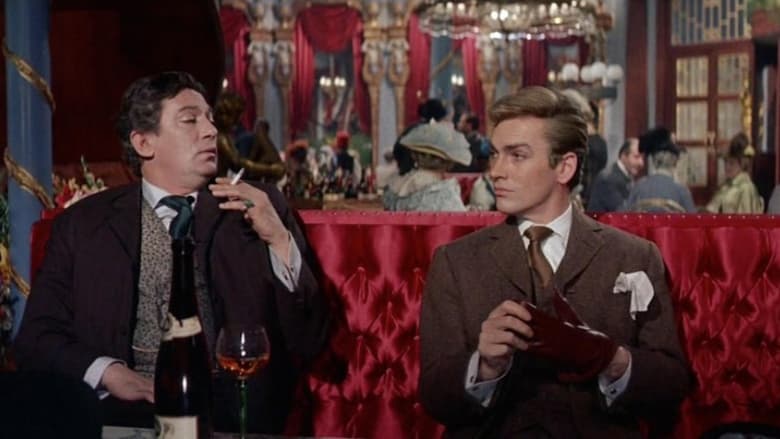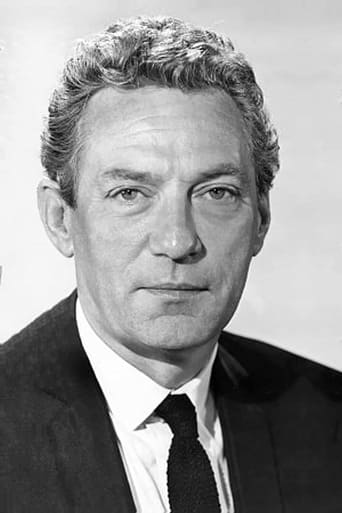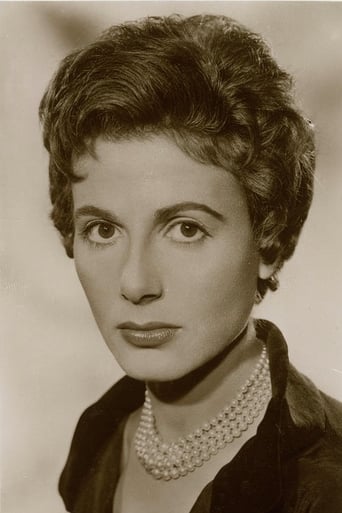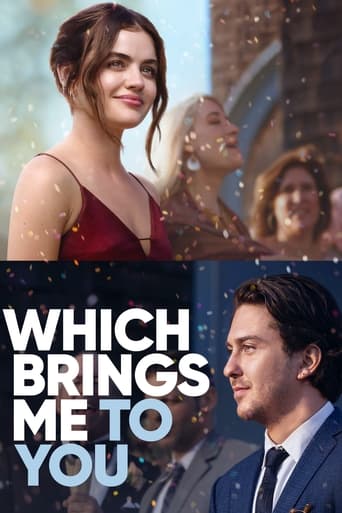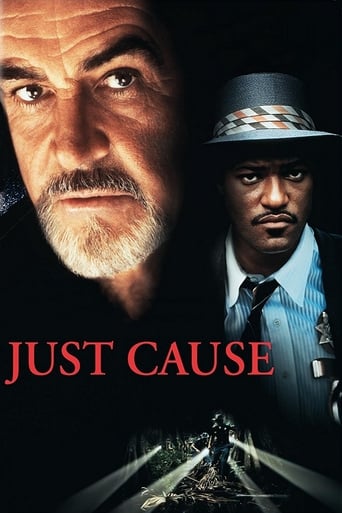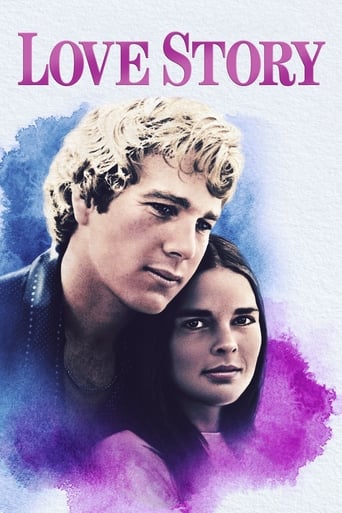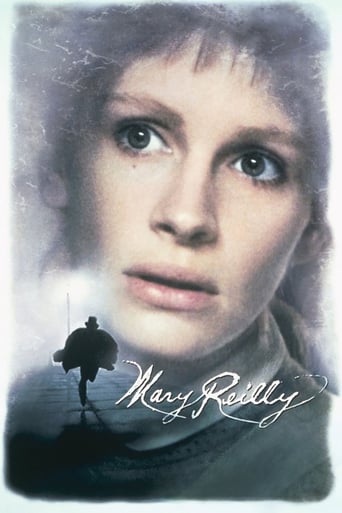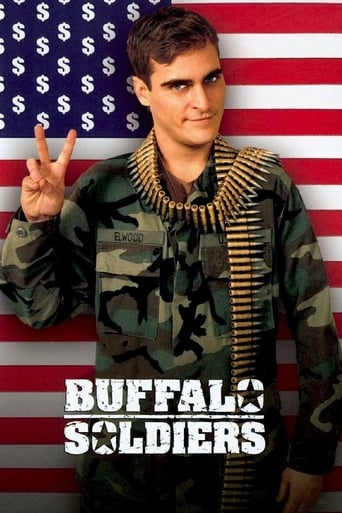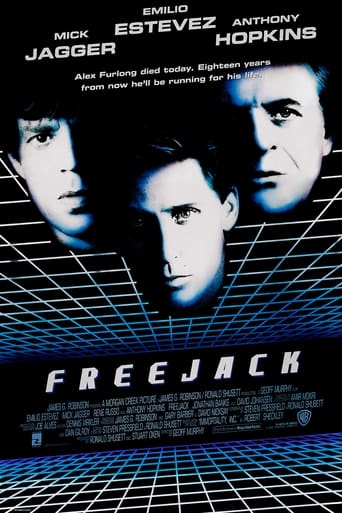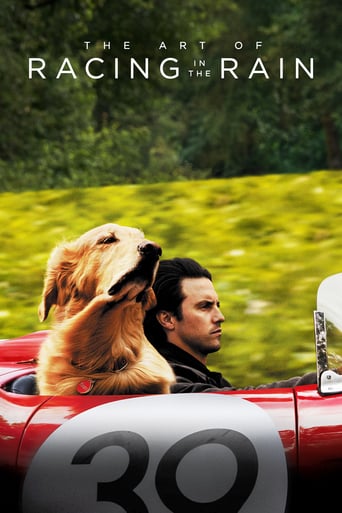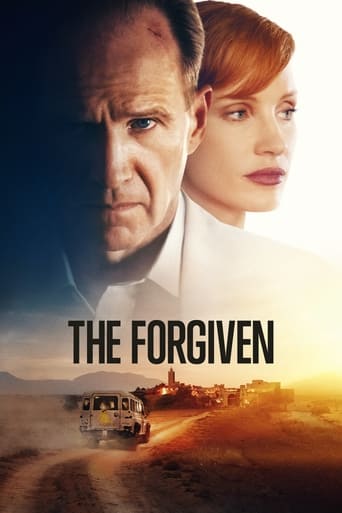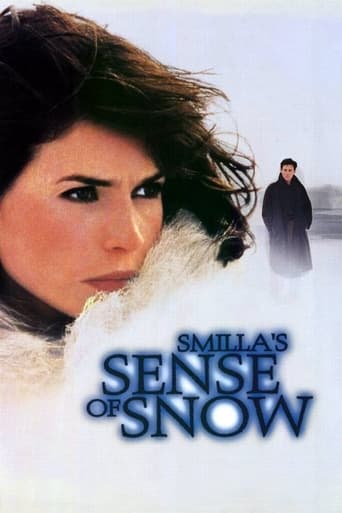The Trials of Oscar Wilde (1960)
England, 1890s. The brutal and embittered Marquis of Queensberry, who believes that his youngest son, Bosie, has an inappropriate relationship with the famous Irish writer Oscar Wilde, maintains an ongoing feud with the latter in order to ruin his reputation and cause his fall from grace.
Watch Trailer
Cast


Similar titles
Reviews
You won't be disappointed!
This movie is the proof that the world is becoming a sick and dumb place
So much average
Wow! What a bizarre film! Unfortunately the few funny moments there were were quite overshadowed by it's completely weird and random vibe throughout.
It is sometimes said of London buses that you can wait ages for one and then two come along at once. So it is with films about Oscar Wilde. The world waited sixty years for a film about him, and then two came along in the same year, "The Trials of Oscar Wilde" starring Peter Finch and "Oscar Wilde" starring Robert Morley. There was, of course, a third version in the late nineties, "Wilde" starring Stephen Fry.I have never seen the Morley film, but "The Trials" has a lot in common with "Wilde". Both tell the same story of Wilde's friendship with the handsome but spoilt young aristocrat Lord Alfred Douglas ("Bosie"), and of how Wilde was pressured into bringing an ill-advised libel suit against Bosie's father, the Marquess of Queensberry, who had accused him of sodomy. As a result of the failure of that lawsuit, Wilde was arrested, charged with gross indecency and sentenced to two years imprisonment. Although the two films acknowledge different source material, "Wilde" is clearly indebted to "The Trials"; the two films have a number of scenes in common. In places the dialogue is almost word-for-word the same.There are, however, a number of differences of emphasis. "The Trials", as its name might suggest, places a greater emphasis on the legal aspects of Wilde's case, with a greater number of courtroom scenes. (The word "trials" clearly has two meanings here; it is used both in its legal sense and in the sense of "sufferings"). It omits, however, details of Wilde's life in Paris after his release, and places less emphasis on his relationship with his wife Constance and with his children.There are some notable acting performances in "The Trials", especially from James Mason as Queensberry's lawyer Edward Carson and Lionel Jeffries as the splenetic Marquess himself, a man eaten up with rage and hatred; I preferred Jeffries to Tom Wilkinson who played this role in "Wilde". John Fraser, on the other hand, was not as good as Jude Law as Bosie. Peter Finch was a gifted actor, but I certainly preferred Fry's interpretation of the title role. Whereas Fry made Wilde witty, but also kindly, sensitive and generous, Finch's Wilde came across as too much the dandy, a man who, although capable of impulsive generosity, often used his wit as a mask to hide his true feelings. Only towards the end of the film, when he realises that he is in danger of imprisonment, does he become more emotional.The greatest difference between the two films is that "The Trials" does not actually admit that Wilde was a homosexual. The impression is given that he may well have been the victim of unfounded gossip, of a deliberate conspiracy led by Queensberry to blacken his name and of perjured evidence given by the prosecution witnesses in court. In reality, there can be no doubt that Wilde was gay, and the Stephen Fry version of his life is quite explicit on this point. Queensberry's accusations were largely true, and in denying them Wilde perjured himself. It has become a received idea to say that he was the victim of the ignorant prejudices of the Victorian era and to congratulate ourselves (rather smugly) that we are today altogether more liberal and enlightened. This attitude, however, ignores the fact that for all his talents and his good qualities Wilde had a strongly self-destructive side to his nature. As some of his lovers were below the age of consent, if he were living in the first decade of the twenty-first century rather than the last decade of the nineteenth, he might actually receive, given contemporary anxieties about paedophilia, a longer prison term than two years. Even if he avoided a jail sentence for sex with minors, he would certainly receive one for perjury.It is precisely because "Wilde" is more honest about its subject that it is the better film. Peter Finch's Wilde is the innocent victim of other men's villainy; Stephen Fry's Wilde is a tragic hero, a great man undone by a flaw in his character. Although he is more seriously flawed than Finch's character, however, he is also more human and lovable, and his story seems more tragic."The Trials", however, probably went as far as any film could in dealing with the subject of homosexuality. For many years it had been taboo in the cinema; a film on this subject would have been unthinkable in the Britain of, say, 1930, or even 1950. By the early sixties the moral climate had become slightly more liberal; the influential film "Victim", which some credit with helping to bring about the legalisation of homosexual acts between consenting adults, was to come out in 1961, a year after "The Trials". In 1960, however, homosexuality was still a criminal offence, and there was a limit to how far it could be freely discussed in the cinema. Seen in this light, "The Trials", although in some respects disappointing, can be seen as a brave attempt to tackle a sensitive topic. 7/10
Peter Finch gives a top drawer performance in the title role of the Trials of Oscar Wilde. It's the story of a man who was a celebrity raconteur and playwright and his fall from grace because of Victorian mores about homosexuality.Today a man like Wilde would not be compelled as Victorian society did compel homosexuals to marry and have children and deny to the world who they were and how they love. Just think that a century later after the controversy surrounding Wilde, we are discussing gay marriage and it's being legalized in many countries. Wouldn't it have all been simpler if Oscar had been allowed to marry Bosy.When the film opens Wilde is already a successful author of many plays and stories and maybe the most quoted man of wit in his time. He's married with two children, but he's got a side life as a gay man. He's got to take his partners where he finds them, a lot of street kids for the most part. And then he falls head over heels for Lord Alfred Douglas played by John Fraser. Fraser is the son of the Marquis of Queensbury, the same guy who thought up the rules for prize fighting. He's a rough and crude man played with relish by Lionel Jeffries. Of course the thought of a gay son is an abomination to him. Can't be that young Bosy is gay, it's that Wilde guy he's hanging out with.Queensbury calls Wilde a "sodomite" and Wilde foolishly decides to sue him for libel. And then the trials take place, first the civil suit and then the criminal trial because sodomy was indeed a criminal offense back in the day.I often wonder why the real Wilde did not just deal with Queensbury in one of his plays. In real life and in the film Queensbury was a boorish lout who could have so easily been caricatured and laughed out of relevancy. Queensbury retained as his attorney Edward Carson, maybe the best barrister of his day. Later on he led the Ulster contingent in Parliamant and was probably the man most responsible for those six counties of Northern Ireland remaining in the United Kingdom.Let's just say that Oscar Wilde uttered one witticism too many during his time on the witness stand and James Mason who gives a great performance as Carson just moves in for the kill. With an international gay movement in full swing now Oscar Wilde and his story may seem quaint to some, but it is relevant today to show that it wasn't that long ago that being who you were was a crime. And a reminder of where gay/lesbian/bi-sexual/transgender folks will be if our hard won rights even as incomplete as they are yet are ever allowed to recede.
First of all I like the way the authentic witticisms of Oscar Wilde have been woven into the script. His sarcastic and pointed remarks derived from a keen observation of the morals, pomposity and hypocrisy of late Victorian England make for intelligent and amusing dialogue between the characters.Peter Finch (Oscar Wilde) delivers lines with a certain flourish, but I think he could be even more flamboyant for such a man was Wilde. John Fraser plays the moody Bosie as Oscar's current lover with a balanced mixture of effeminate charm and petulance. Best acting role is that of Lionel Jeffreys as the Marquis of Queensbury. Make no mistake his character comes through loud and clear. He gives a remarkable portrayal of his utter disgust when his 21 year old son Bosie defies him and continues his relationship with Oscar, a man of middle age and married. All London is gossiping and there is much clicking of tongues. Mrs. Wilde played by beautiful Yvonne Mitchell stands by in utter dismay and disapproval.The courtroom scene gives Oscar the opportunity to deliver more witty lines and to describe his inner feelings about true love...interesting because one is not too sure what he is about to say next. One gets the feeling that Oscar has chosen the path of self-destruction...or is he just being his theatrical self?After he does his prison sentence with hard labour he is supposed to look tired and ill, but I fail to notice much of a change in his demeanour. He should be much paler with a worn down look. This would command more sympathy. Oscar's sexual adventures around the streets of London are not discussed to any extent nor portrayed in this film. If they had been given more prominence we would perhaps have felt justified in agreeing with the jury's decision. As it is , the sordid details of his sexual encounters are played down and because the film is presented in this way we feel rather sad that this great playwright both loving and generous should suffer so much at the hands of those who tried to destroy him.
One never quite believes the character given a rather masculine portrayal by Peter Finch is involved in a love affair with the young Lord Alfred Douglas, but the tentative treatment of the film's subject matter is understandable since homosexuality was still illegal in Britain at the time of its release. More importantly, however, is how effectively the film relates the story of a man who is ruined by a society which can be so hateful. Although Wilde is portrayed at first as an arrogant and indulgent celebrity, as his love for his family and his torn loyalties are revealed it becomes hard for one to feel no sadness as he is made to pay with public disgrace and a jail sentence. John Fraser is perfectly cast as the spoilt and manipulative Douglas.

